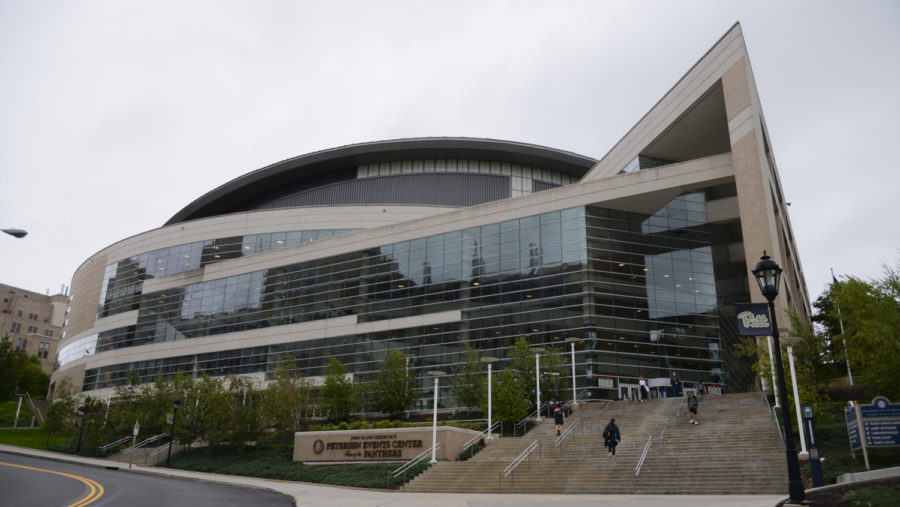Column | After decades of football mediocrity, Pitt has become basketball school
The Petersen Events Center.
February 12, 2021
This column is part of a series. To read the column about soccer, click here. To read the column about football, click here.
Pitt hasn’t been a football school since 1999. When the concrete walls of Pitt Stadium came down, opening up space for the Petersen Events Center to take its place, basketball officially replaced football as the University’s sport of focus. And for the next decade and a half, the results followed.
The peak of the Ben Howland and Jamie Dixon years paid off with the Pitt administration’s decision to move the basketball programs out of the still-aging Fitzgerald Field House. If not for the disastrous decision by former Athletic Director Scott Barnes to replace Dixon with now-former head coach Kevin Stallings, the basketball program’s place upon the peak would not be questioned.
It is understandably a hard pill to swallow for those who remember Pitt football’s glory days of success with Tony Dorsett and Dan Marino to have a program with nine national championships eclipsed as the most important name on campus. As long as football games sit a yellow school-bus ride away for its student fans — who then must deal with the wrath of ALCO tailgating enforcement — and the majority of the alumni fan base continues to fall short of the attendance needed to fill the mustard bowl of Heinz Field to a suitable capacity, then the modern football program will forever live in the shadow of its historical background.
In the years immediately before Pitt Stadium came down, and in the 21 years since, that same football team has chronically underachieved. Year after year, the team sends talent to the next level despite a continued lack of meaningful success for Pitt. Aaron Donald, Larry Fitzgerald, Darelle Revis and more have worked through the Pitt program in the past two decades, yet the team hasn’t come close to a national championship appearance in that time.
In that same time frame, Pitt basketball found itself ranked as the top team in the nation while also bringing home something Pitt football hasn’t truly sniffed since bell-bottom jeans were in fashion — a conference title in the Big East Tournament.
Those who sit on the other side of this argument argue that a true basketball school would completely ignore football through the fall season. I find this insistence ridiculous, but it’s apparent that by late November, year in and year out, focus of the fan base turns — at least in the more recent years — to the optimism and hope offered by the tip-off of a new basketball schedule.
Pitt football normally fights for a .500 record at that point in its season anyway. Until Pitt proves that, under the current structure, it can sustainably compete on the gridiron at the level it claims it can, the passion and focus of the fans will lie inside the Petersen Events Center among the Oakland Zoo. Because Pitt is for now, and the foreseeable future, a basketball school.



